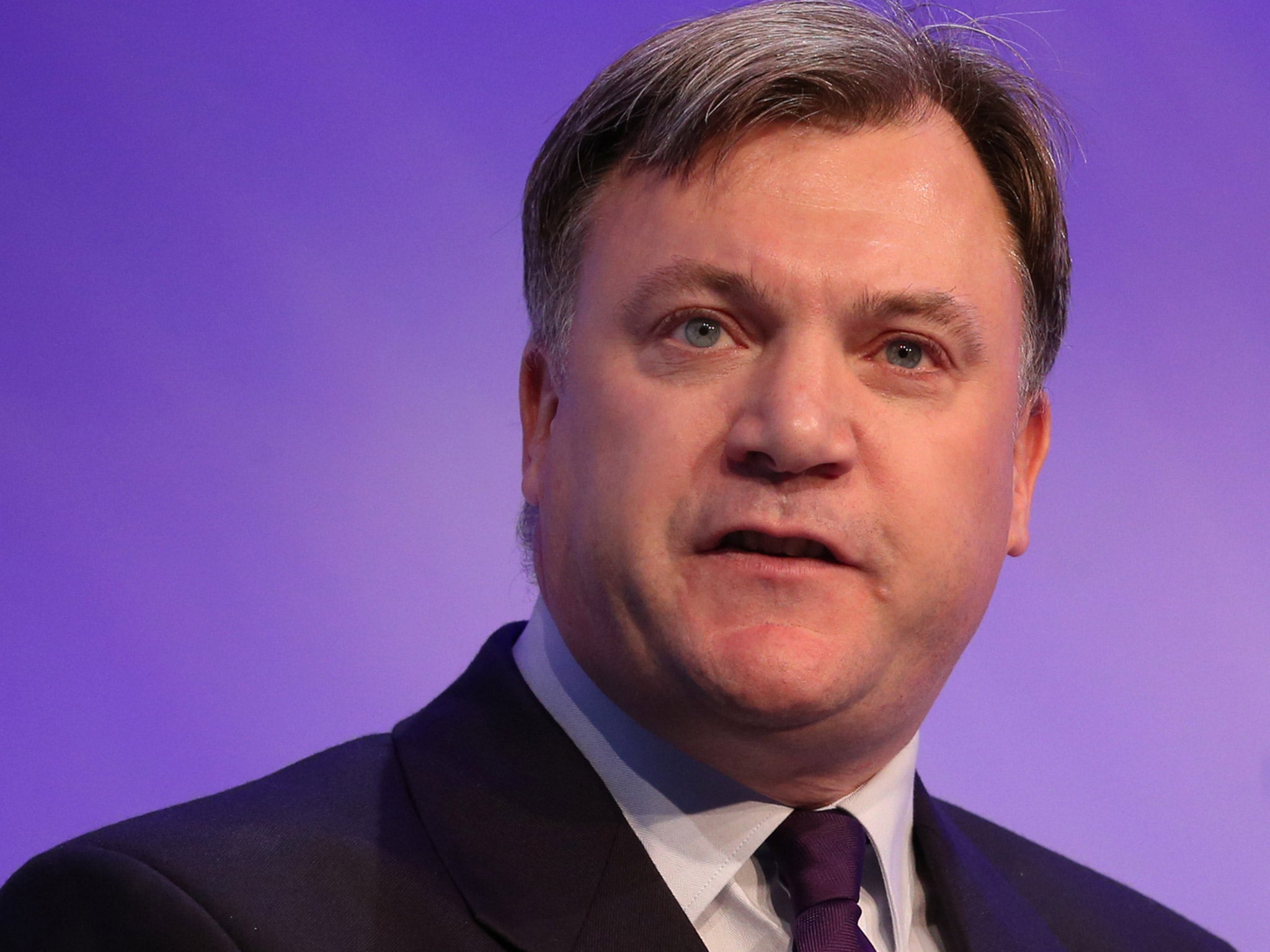'Are you better off than four years ago?' Labour takes inspiration from former US President Ronald Reagan
Miliband and Balls seize on slump in wages to hone message used by ex-President

The fall in earnings under the Coalition will be the biggest in any parliament since 1880, according to a new analysis by the House of Commons Library.
Labour will seize on the findings today as it warns working people that they could not afford another five years of “the same old Tory economics”.
The analysis, commissioned by Labour, found that the 2010-2015 period will see the largest drop in average earnings after inflation - 2.3 per cent – in any parliament since 1874-1880. The Coalition will also be in charge during the first parliament since the 1920s when real earnings will be lower at the end than the beginning.
The figures will be used as ammunition by Labour in next year’s general election campaign. Labour leaders believe the statistics will provide a “reality check” for hard-pressed voters as Conservative ministers trumpet the halving of the deficit and Britain’s return to economic growth.
Labour sources told The Independent that the party would pose the same question to voters that Ronald Reagan asked Americans at the 1980 election in which he defeated President Jimmy Carter: “Are you better off than you were four years ago?”
Senior Labour figures take heart from Barack Obama’s re-election as US President in 2012 even though he trailed his opponent Mitt Romney on economic competence. Mr Obama stood on a platform of economic reforms to help the middle classes. Similarly, Labour will promise to help those on lower and middle incomes, portraying the Tories as standing for “the few” at the top.
Ed Balls, the shadow Chancellor, will say: "While David Cameron and George Osborne complacently claim the economy is now fixed, the truth is most people are worse off under the Tories. For working people, average wages after inflation are down by over £1600 a year since 2010. This is a dismal record of failure.”
Speaking in Bedford, Mr Balls will spell out the “stark choice” facing voters at next year’s general election.
“A choice between a Labour plan to make Britain better off and fairer for the future - with rising living standards for the many, not just a few at the top - or more of the same from the same old Tories,” he will say.
“More good jobs with Labour or a race to the bottom on wages under the Tories. The books balanced fairly with Labour or ordinary families hit first under the Tories. Reforms to make Europe work better for Britain with Labour, or sleepwalking to the EU exit door and putting millions of jobs at risk under the Tories.”

The shadow Chancellor will warn that a Conservative government would cut the top rate of tax on income over £150,000 a year from 45p to 40p in the pound. "We know George Osborne wanted to cut it down to 40p in his 'omnishambles' Budget two years ago. David Cameron won't rule out doing it. And Boris Johnson and the right are now demanding it,” he will say. "This is the real Tory agenda for a second term. The same old Tories standing up for the few, while everyone else is left behind. And it shows just how much is at stake next year."
Outlining Labour’s “big reform, not big spending” agenda, Mr Balls will promise that he would “balance the books” by 2020 but in a “fairer way” than the Tories, reversing the “millionaires’ tax cut” and reducing the winter fuel allowance for the richest pensioners.
He will say that Labour’s key election pledges will include expanding free childcare; freezing energy bills; a 10p starting rate of tax; raising the minimum wage; tax breaks to firms paying the higher living wage; at least 200,000 new homes built each year; more competition in energy and banking and cutting business rates.

In a rehearsal for the election campaign, the Tories have argued that Labour’s plans do not add up. Priti Patel, the Treasury Exchequer Secretary, said the measures listed by Mr Balls would mean £17bn of extra spending, but that he had found only £105m to pay for them.
She said: “Labour spent and borrowed their way through the good times and left us with the biggest deficit in our peacetime history. The real choice Britain will face next May is between a long-term economic plan that is supporting hardworking taxpayers, or a Labour Party that hasn’t learned its lesson and would add more debt than future generations can ever pay.”
Join our commenting forum
Join thought-provoking conversations, follow other Independent readers and see their replies
Comments
Bookmark popover
Removed from bookmarks